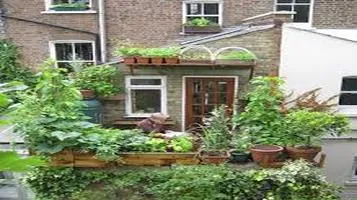Container-Friendly Vegetable Seeds: A Gardening Revolution in Urban Spaces
Container-Friendly Vegetable Seeds are specially selected varieties ideal for urban gardeners and those with limited space, allowing you to cultivate fresh produce on patios, balconies, or even windowsills. These seeds are tailored for compact growth, ensuring they thrive in confined environments while still producing a bountiful harvest. Popular choices include cherry tomatoes, lettuce, radishes, and herbs like basil and mint, which are known for their adaptability and quick growth. These seeds are often bred for disease resistance and high yield, making them perfect for novice gardeners. With proper care and the right container, they can bring the joy of gardening to any setting, providing fresh, home-grown vegetables that enhance meals and offer a sustainable option for healthy eating.

Gardening, once seen as a pastime reserved for those with sprawling backyards and ample space, has undergone a revitalizing transformation. The advent of container-friendly vegetable seeds has revolutionized gardening, making it accessible to urban dwellers and those with limited outdoor spaces. These seeds are specially curated to flourish in confined spaces, such as balconies, patios, and even windowsills. As an urban gardener myself, I embarked on a journey to test various container-friendly vegetable seeds, and the results have been nothing short of extraordinary.
One of the most remarkable aspects of container-friendly vegetable seeds is their adaptability. Traditional gardening often presents challenges such as soil quality, pest control, and space constraints. However, these seeds are specifically bred to thrive in containers, offering a viable solution to each of these hurdles. The compact nature of container gardening allows for meticulous control over soil composition and drainage, leading to healthier plants and higher yields. Furthermore, the confined environment reduces the risk of pests and diseases, as these can be more easily managed and monitored.
My experience began with selecting a variety of seeds from a reputable supplier. The range available is impressive, catering to a wide spectrum of tastes and preferences. From leafy greens like spinach and kale to root vegetables such as carrots and radishes, and even fruiting plants like tomatoes and peppers, the options are extensive. The packaging of these seeds often includes detailed instructions on planting depth, spacing, and care, making the process straightforward even for novice gardeners.
I started my container garden with a mix of leafy greens and herbs, including lettuce, basil, and cilantro. The first thing I noticed was the germination rate. Unlike some traditional seeds that can be hit or miss, these container-friendly seeds had an exceptionally high germination rate. Within days, tiny sprouts began to emerge, filling me with a sense of accomplishment and excitement. The rapid growth was a testament to the quality and suitability of the seeds for container gardening.
As the plants grew, it became evident that they were well-suited for the confined space of containers. The leafy greens, in particular, thrived and produced lush, vibrant foliage. The compact growth habit of these plants meant they did not require extensive pruning or staking, a common necessity in traditional gardening. This made maintenance a breeze, even for someone with a busy urban lifestyle. The herbs, too, were a delightful addition, providing fresh, aromatic leaves that enhanced my culinary endeavors.
The success of the leafy greens encouraged me to expand my container garden to include fruiting vegetables. I planted cherry tomatoes and mini bell peppers, both of which have a reputation for being well-suited to container growth. These plants did not disappoint. The cherry tomatoes, in particular, were a highlight. The plants remained compact yet produced an abundance of juicy, flavorful tomatoes. The mini bell peppers followed suit, offering a vibrant display of colors and a sweet crunch that was a joy to harvest.
One of the significant advantages of container-friendly vegetable seeds is the ability to extend the growing season. In a traditional garden, the growing season is often limited by climatic conditions. However, container gardens can be moved indoors or to sheltered locations, allowing for year-round cultivation. This was particularly beneficial for my herbs and leafy greens, which continued to thrive even as the weather turned colder. The flexibility to adapt to changing conditions is a game-changer for urban gardeners looking to maximize their yield.
Another noteworthy benefit is the educational value of container gardening. For those with children, it offers a hands-on learning experience about plant biology, sustainability, and the importance of fresh produce. My own children became fascinated with the process, eagerly checking on the plants' progress and taking pride in the harvest. This family-friendly activity fosters a deeper appreciation for nature and healthy eating habits.
However, container-friendly vegetable seeds are not without their challenges. The limited soil volume in containers can lead to nutrient depletion, necessitating regular fertilization. Additionally, containers can dry out more quickly than traditional garden beds, requiring more frequent watering. These issues, though, are easily manageable with a little attention and care. Using high-quality potting mix and incorporating organic fertilizers can mitigate nutrient loss, while self-watering containers or regular watering schedules can address moisture needs.
In conclusion, container-friendly vegetable seeds have democratized gardening, making it accessible and enjoyable for urban dwellers and those with limited outdoor space. The adaptability, high germination rates, and ease of maintenance make them an excellent choice for novice and experienced gardeners alike. The ability to grow a diverse range of vegetables and herbs in confined spaces opens up new possibilities for fresh, home-grown produce, regardless of where you live. While there are some challenges, the benefits far outweigh them, making container-friendly vegetable seeds a worthwhile investment for anyone looking to embark on a rewarding gardening journey.






